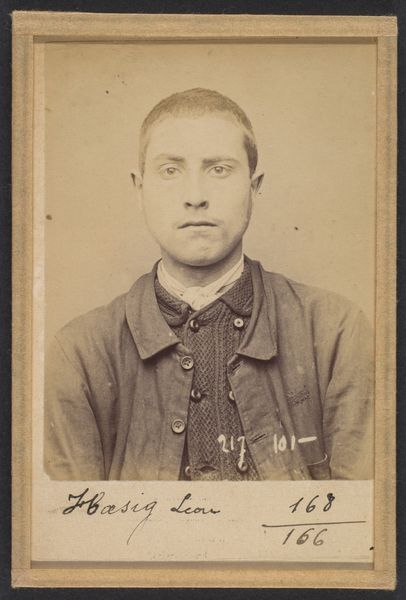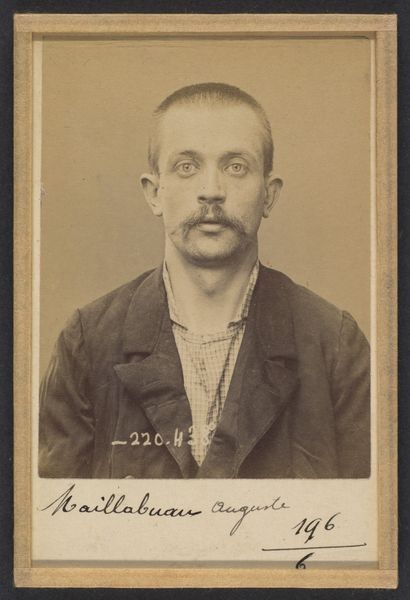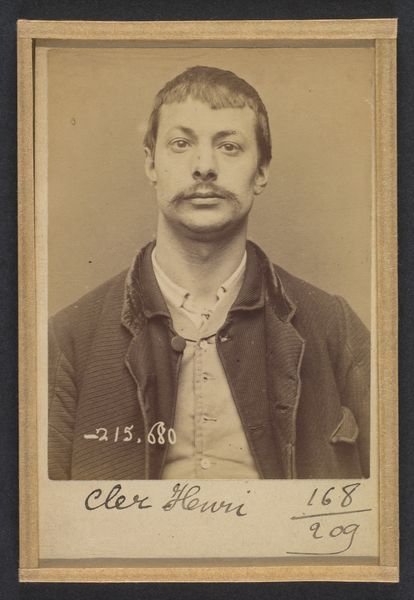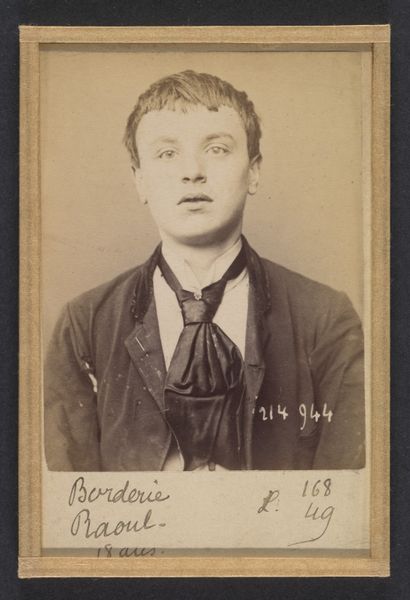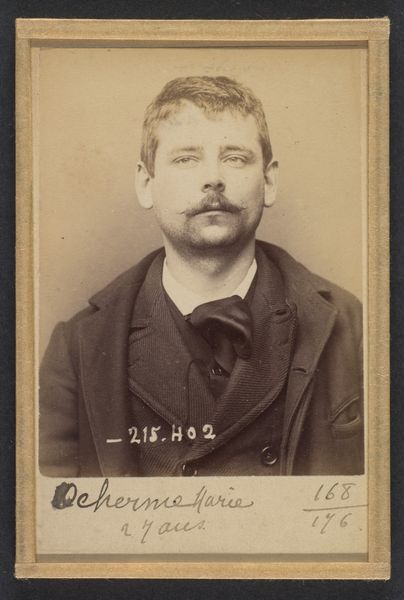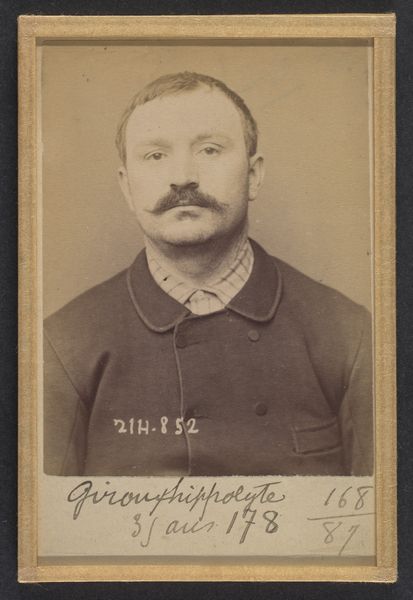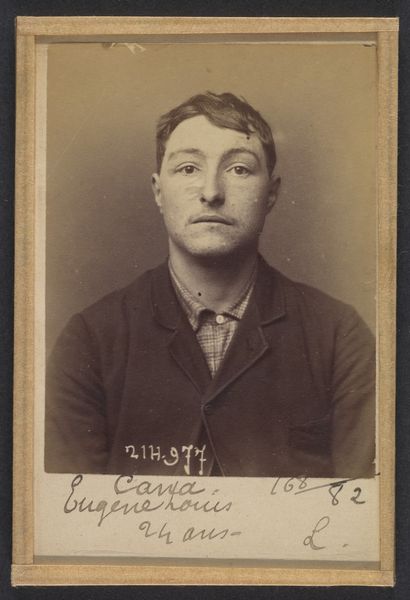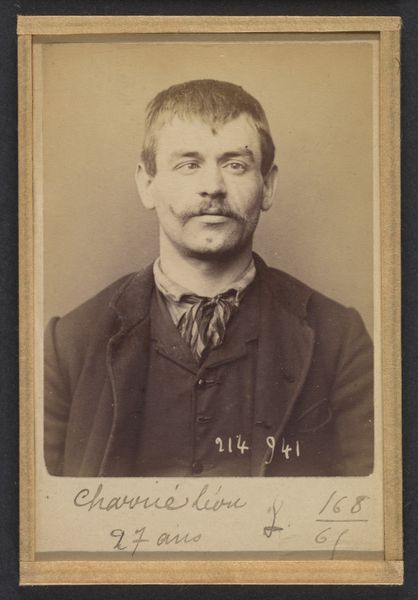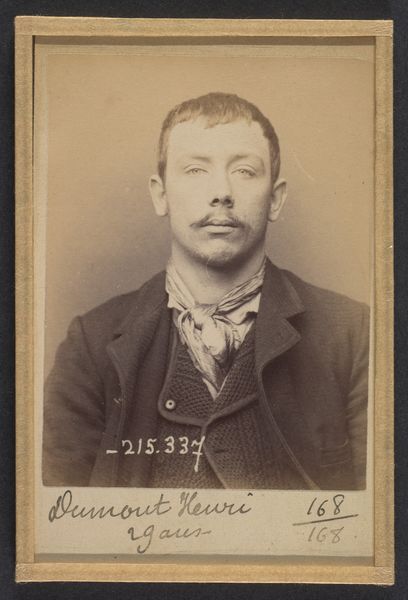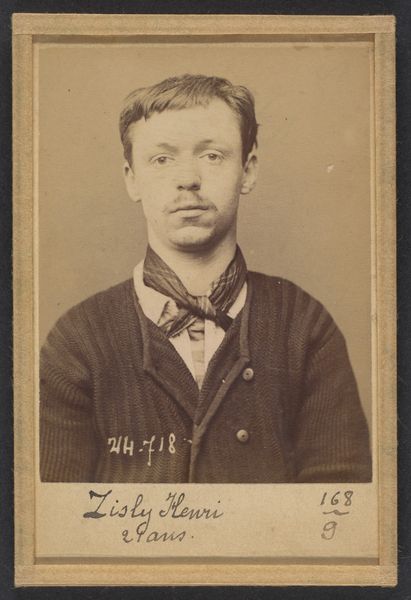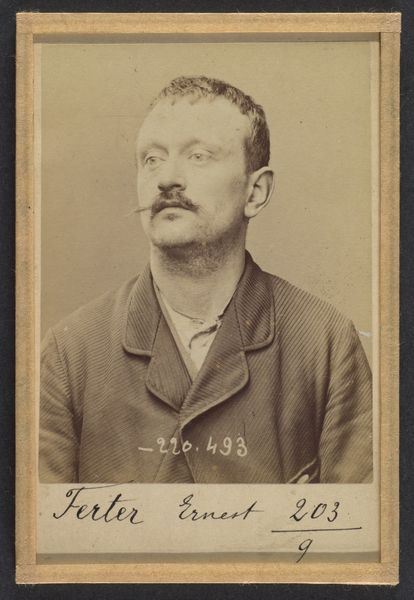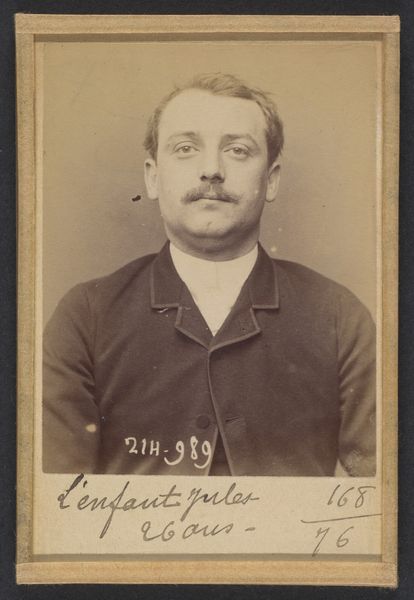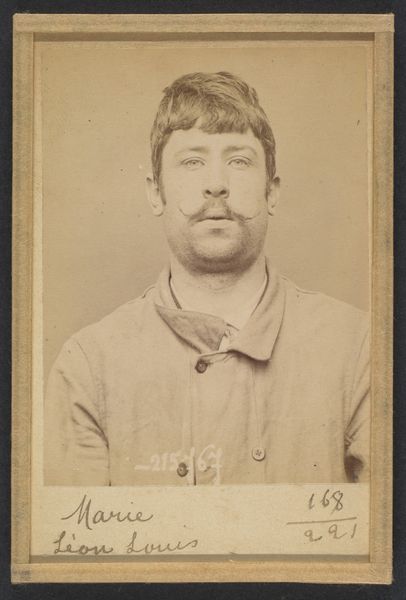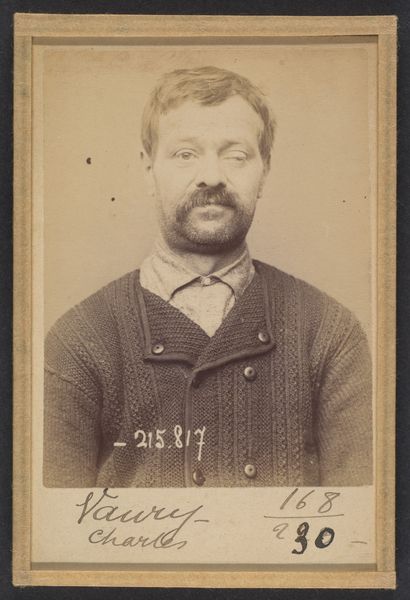
Augendre. Ernest. 37 ans, né à St-Pierre le Moutier (Nièvre). Maçon. Anarchiste. 1/3/94. 1894
0:00
0:00
print, photography, albumen-print
#
portrait
# print
#
photography
#
historical photography
#
pre-raphaelites
#
albumen-print
Dimensions: 10.5 x 7 x 0.5 cm (4 1/8 x 2 3/4 x 3/16 in.) each
Copyright: Public Domain
Editor: This albumen print by Alphonse Bertillon, titled "Augendre. Ernest. 37 ans, né à St-Pierre le Moutier (Nièvre). Maçon. Anarchiste. 1/3/94", created in 1894, is strikingly stark. It’s like a historical record, cold and indifferent. What can you tell me about this portrait? Curator: This image presents more than just a face; it captures a moment in the evolution of societal attitudes towards law, order, and social deviance. What strikes you most about the sitter's expression or demeanor, given his self-proclaimed title, Anarchist? Editor: Well, there’s a certain resignation, almost weariness in his eyes. He doesn't strike me as a dangerous revolutionary. Does his portrait play into, or perhaps subvert, any common visual tropes about anarchists from that era? Curator: Consider the context: late 19th-century France, a period rife with social and political upheaval. Anarchism was viewed with suspicion and fear. Bertillon’s mugshots weren't just neutral records; they actively constructed a visual language of criminality. Notice how the even lighting and direct gaze seem to deny the subject any opportunity for mystique. How might this clinical approach, devoid of artistic flourish, influence public perception of someone labeled an 'Anarchist'? Editor: It almost dehumanizes him, making him an object of study rather than an individual. So, the symbolism is in the technique itself? Curator: Precisely. The photograph's power lies in its apparent objectivity, an objectivity that serves a very particular agenda. By stripping away individual character, it reinforces the fear of the 'other'. What this portrait makes me reflect on, is how "objective" portraits can never truly be separate from social control and dehumanization. Editor: I see. I initially reacted to it as simply a sad portrait, but now it's clear how the visual language carries cultural anxiety and a darker psychological weight. Thanks!
Comments
No comments
Be the first to comment and join the conversation on the ultimate creative platform.
